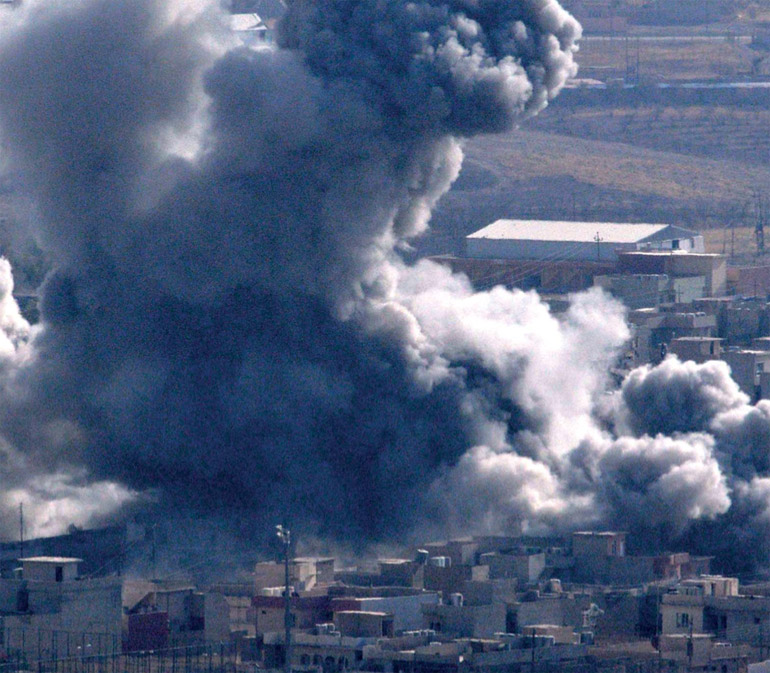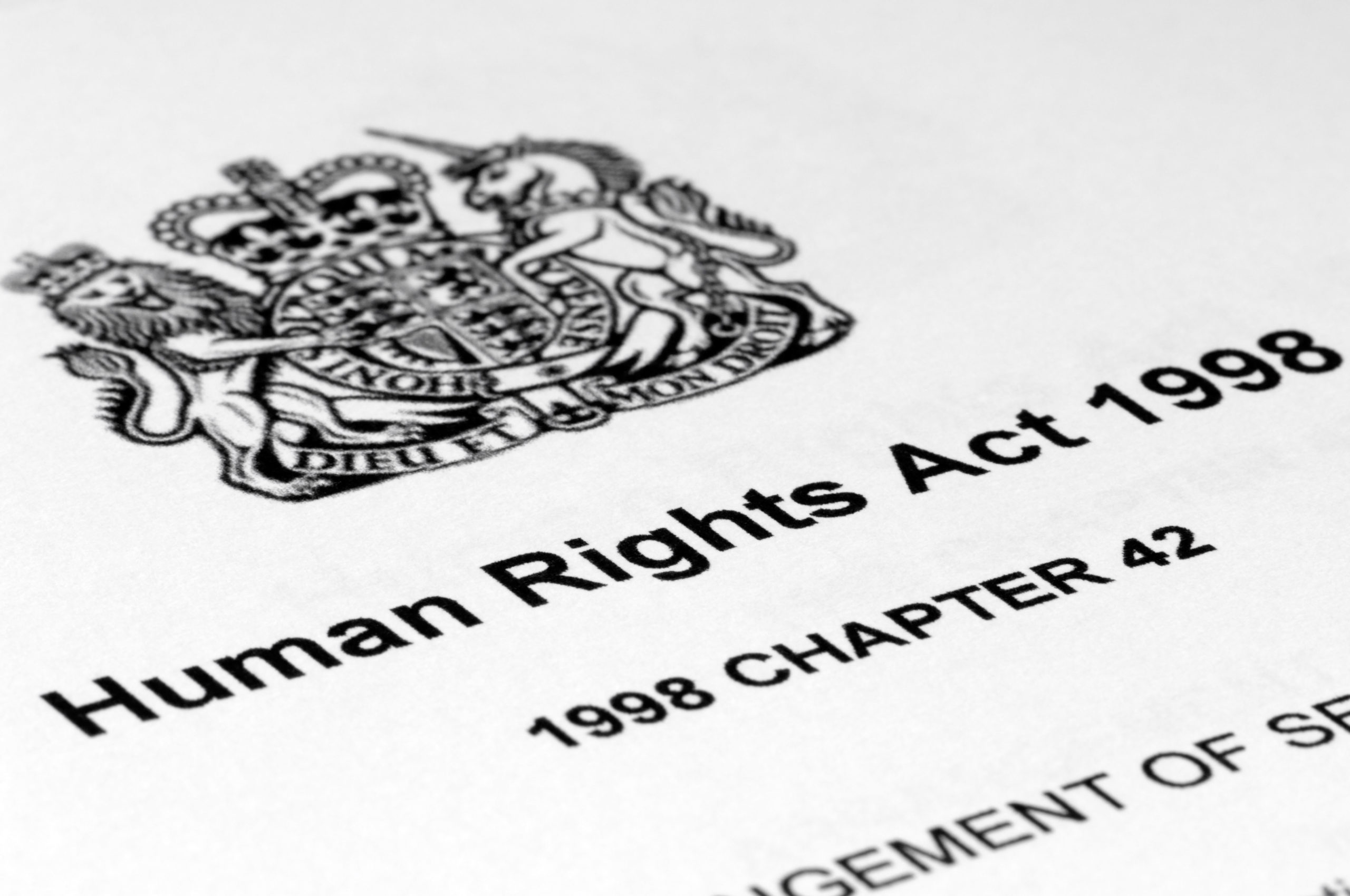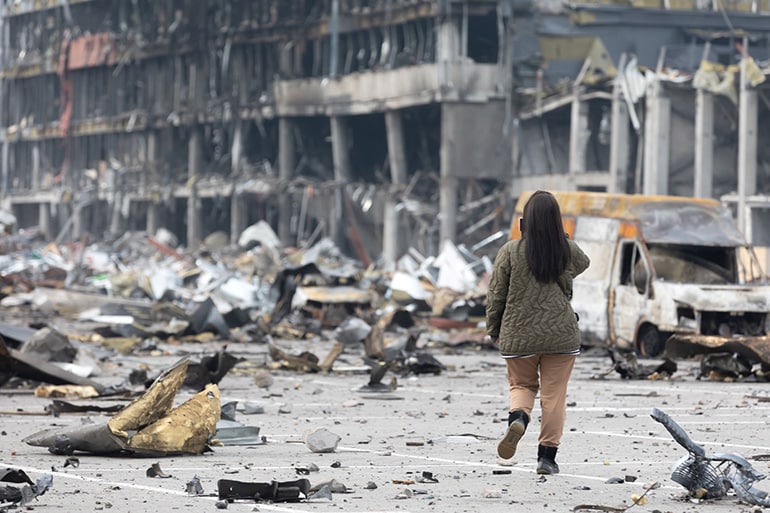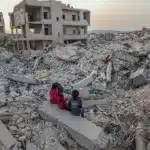July 2017
As US-led coalition forces in partnership with a non-state armed group, the Syrian Democratic Forces, continue their attempt to take Raqqa from ISIS control, up to 200,000 civilians remain at risk, including some 70,000 inside the city.
In June the chair of the UN Commission of Inquiry on Syria warned that the intensification of coalition air strikes had already led to a ‘staggering loss of civilian life’. Syrian human rights groups have recorded some 1,400 civilian deaths in total over the last eight months including those from air strikes, artillery fire, and hundreds killed by ISIS on the ground.
The pattern of killing in Raqqa is tragically beginning to resemble that during the nine-month assault on Mosul in neighbouring Iraq, which ended this month.
A survey of recent practice by Iraqi and international coalition forces published by the Ceasefire Centre at the start of the Mosul campaign warned then that the lives of thousands of civilians were at critical risk.
Report PDF: Civilian protection in the battle for Mosul: critical priorities
Civilian protection in the battle for Mosul: Critical priorities found that recent precedents from military operations to retake Iraqi cities from ISIS control, including Tikrit, Ramadi, Fallujah and Sinjar, demonstrate a pattern of repeated failures to implement sufficient measures for civilian protection, both in the conduct of hostilities and in planning for the humanitarian consequences. In the event, thousands of civilians were killed in Mosul and, according to the most recent figure from the International Organization for Migration, over one million were displaced.
In particular, the imposition of siege tactics on ISIS-held cities and the intensive bombardment of urban areas by international coalition forces has combined with the ISIS tactic of using ‘human shields’ to result in thousands of civilian casualties and high levels of civilian suffering.
The operation to encircle Raqqa and lay siege to the city threatens to concentrate the battle in neighbourhoods that remain heavily populated with civilians.
All parties to the conflict should adhere at all times to their obligations under international humanitarian law, including ensuring respect for the fundamental principle of distinction, prohibiting indiscriminate attacks, and taking all feasible precautions to avoid, or in any event minimise, civilian death or injury or damage to civilian objects.























